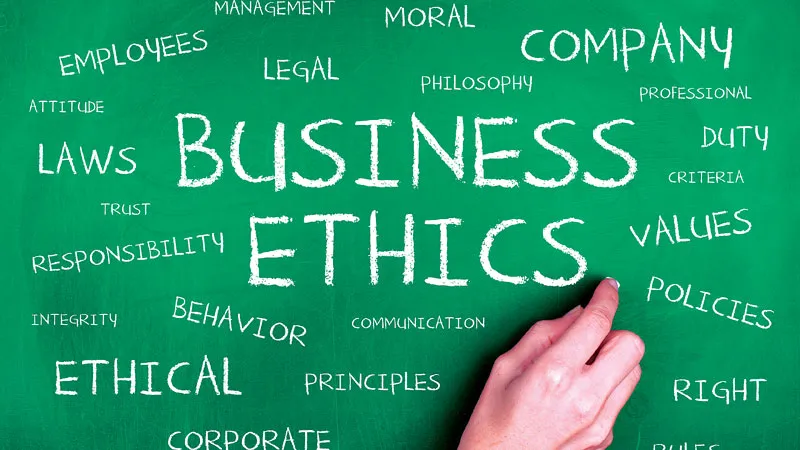In the modern marketplace, trust is the cornerstone of successful business relationships. Whether you're a small business owner seeking reliable partn
In the modern marketplace, trust is the cornerstone of successful business relationships. Whether you’re a small business owner seeking reliable partners or a customer relying on a service provider, ethical business practices significantly influence the trust equation. This blog post explores how adhering to ethical standards helps service providers cultivate trust, enhances brand reputation, and drives long-term success.
Understanding Ethical Business Practices
Ethical business practices are the principles and behaviors that guide companies in conducting business with honesty, integrity, and accountability. These practices encompass various aspects, including:
- Transparency: Sharing accurate information about services, pricing, and policies.
- Fairness: Offering equal opportunities and avoiding discrimination.
- Respect: Treating employees, customers, and stakeholders with dignity.
- Environmental Responsibility: Operating in a way that minimizes harm to the environment.
- Compliance: Following laws, regulations, and industry standards.
When service providers integrate these principles into their operations, they create a foundation for trust.
The Connection Between Ethics and Trust
Trust is a crucial element in business relationships, especially in the service industry, where intangible offerings can create uncertainty. Here’s how ethical practices build trust:
1. Transparency Enhances Credibility
Transparency in pricing, policies, and operations reassures customers and partners that they’re making informed decisions. For instance, a service provider offering clear contracts without hidden fees demonstrates respect for the customer’s right to know.
2. Integrity Fosters Reliability
Delivering services as promised reflects integrity, a core ethical value. When customers see that a business consistently meets its commitments, they’re more likely to rely on it for future needs.
3. Fair Treatment Builds Loyalty
Fairness in dealings—whether with employees, customers, or partners—strengthens relationships. Customers are more likely to stick with service providers who treat them equitably and resolve conflicts fairly.
4. Ethical Leadership Inspires Confidence
Leaders who prioritize ethics set the tone for the entire organization. Their example can inspire employees to adopt ethical practices, resulting in consistent, trustworthy interactions with customers.
Real-Life Examples of Ethical Practices in Action
Many organizations have demonstrated how ethical practices lead to trust and success:
- Patagonia: This outdoor clothing company’s commitment to environmental sustainability has earned it a loyal customer base. By promoting fair labor practices and eco-friendly production, Patagonia has built trust with environmentally conscious consumers.
- Zappos: Known for its exceptional customer service, Zappos empowers employees to go above and beyond for customers. Its ethical commitment to customer satisfaction creates long-lasting relationships.
- Ben & Jerry’s: Through social justice campaigns and ethical sourcing of ingredients, Ben & Jerry’s illustrates how corporate responsibility can enhance trust and brand loyalty.

Benefits of Ethical Practices for Service Providers
Service providers who adopt ethical practices enjoy several advantages:
1. Reputation Management
A reputation for ethical conduct attracts new customers and retains existing ones. It positions the service provider as a trustworthy partner in the eyes of stakeholders.
2. Customer Retention
Satisfied customers who trust a service provider are more likely to return and recommend the business to others. Word-of-mouth referrals are invaluable in building a loyal customer base.
3. Employee Satisfaction
Employees prefer working for organizations that value ethics. A motivated workforce delivers better service, further strengthening customer relationships.
4. Risk Mitigation
By complying with laws and regulations, service providers reduce the risk of legal issues, financial penalties, and reputational damage.
5. Competitive Advantage
Ethics can differentiate a business in a crowded market. Customers and partners often choose service providers whose values align with their own.
Implementing Ethical Business Practices
For service providers looking to enhance trust, implementing ethical practices requires a deliberate approach. Here are some actionable steps:
1. Develop a Code of Ethics
Create a formal document outlining the organization’s ethical principles. Ensure employees understand and commit to these values.
2. Foster a Culture of Integrity
Leadership should model ethical behavior, encouraging employees to do the same. Recognize and reward ethical decisions to reinforce positive behavior.
3. Prioritize Customer Feedback
Listening to customer concerns and acting on them demonstrates respect and accountability. Use surveys, reviews, and direct communication to gather input.
4. Train Employees
Conduct regular training sessions on ethical practices and customer service excellence. Empower employees to make decisions that align with company values.
5. Be Transparent
Clearly communicate policies, pricing, and service details. When challenges arise, be honest about the situation and the steps being taken to address it.
6. Commit to Sustainability
Adopt eco-friendly practices to show a commitment to the environment. Customers increasingly value businesses that operate responsibly.
Overcoming Ethical Challenges
While ethics are essential, challenges can arise, such as:
- Balancing Profit and Ethics: Companies may feel pressured to prioritize profits over ethical practices. However, short-term gains from unethical actions often lead to long-term losses in trust.
- Gray Areas: Ethical dilemmas may not always have clear answers. In such cases, relying on core values and stakeholder input can guide decisions.
- Resistance to Change: Implementing new ethical practices may face internal resistance. Overcoming this requires clear communication about the benefits of such practices.
Conclusion
Ethical business practices are not just a moral imperative; they are a strategic asset. Service providers that operate transparently, treat stakeholders fairly, and maintain integrity earn the trust and loyalty of their customers. This trust, in turn, fuels growth and secures a competitive edge in the marketplace.
By prioritizing ethics, service providers can build stronger relationships, enhance their reputation, and ensure long-term success. In a world where trust is invaluable, the role of ethical business practices cannot be overstated.




COMMENTS